Hammer Time: Good, Fast, And Cheap
Good, Fast and Cheap.
Feel free to pick any two when it comes to all things cars. Consumer. Retailer. Rebuilder. Doesn’t matter. You always get a choice of two out of the three.
Don’t believe me?
Good. Cynicism is always a solid first step in buying any used vehicle. Whether you are kicking the tires at a lot as the end consumer. Or listening to the urgent chant of an auto auctioneer trying to sell the mediocre remnants of a rental fleet at a wholesale dealer auction. Everyone pretends to offer you a great deal.
But truth and reality in this business, at all levels of this business, are two very separate things.
Let’s take all those great deals I get from the auctions… good, fast and cheap. Sure. I do get them all. Just almost never in the same car.
The Good and Fast Selling Car, Is Never Cheap To Buy
Do these sell? You betcha. The reason is that these cars wind up as ‘finance fodder’. Consumers who are looking for the cost of the monthly payment, and little more, almost always want a popular late model vehicle and are willing to spend five to seven years indentured to that popular ride for that privilege.
The only problem is that you can’t buy these vehicles in any great volume if you are an independent dealer. Thanks to record low production numbers in 2010, and the manufacturer’s new found ability to create aggressive CPO programs that keep this inventory firmly within the dealer network. So whenever these vehicles do pop up at the auctions, they are almost always a repo that is bid to an absolute pie in the sky valuations.
The price at the retail level only makes sense once you realize that the end consumer simply can’t do math.
You Want A Good And Cheap Car? Are You Real Sure About That?
The good and cheap car, almost always, does not sell fast. We blame the public for this. Damn snobs!
In our business these are the cars that were made forever, have conservative owners, and were maintained with reasonable care. Ye olde Lincoln Town Cars and Mercury Grand Marquis, most Buicks, a few Oldsmobiles, Tauruses, Malibus, and generally anything that was either a rental fleet special back in the day, or appeals to mature people, will fall into this category.
Cars that once were fast selling, but have declined in popularity over the last several years, also fall into the good/cheap, but unpopular nexus. It used to be that Mustang and Camaro convertibles, and a variety of SUV’s that didn’t come with leather and all the options would wind up at the car lot for a very short period of time.
Well, if you are not in the mood to go anywhere, I guess I’ll just sit and think for a while. Ten more years of thumb twiddling I guess!
Today’s gas prices have changed that game.
When most folks look at any base to mid-level V8 model these days, they don’t think speed at all unless it’s their first car. They think gas. As in gas guzzling models that are going to seriously crimp their already limited budgets.
The same is true with most large cars and trucks that don’t come loaded up with popular options, but have a big engine in them. If a consumer is willing to buy a gas swilling beast, it’s only because of all the cool features that make it worth a stiff gas penalty.
Uncool? This guy is 1000 times cooler than the five-figure debt you pay for what amounts to daily transportation.
The Not-In-My-Driveway Syndrome
The good and cheap car is a double whammy if the model you buy also happens to be a one generation wonder (Lincoln LS, Mercury Cougar, Pontiac G6) or has an unpopular feature (stickshift in a non-sporty vehicle, traditional wagon style, minivans without power sliding doors or leather seats).
Domestic luxury and full-sized cars, minivans, regular cab full-sized trucks, and most sport coupes that don’t have a popular brand name will also fall into this category. The Toyota Matrix sells. The Pontiac Vibe sits. Most consumers who pretend to shop for the deal of the Vibe, are really just looking for the Matrix at a cheaper than market price.
These unpopular cars will likely sit for close to three to four months, and the person you finance it to may be a serious gamble due to their employment and/or criminal history. They need access to a car and yours is simply a last result. As a result, most of these customers have payment issues within a few months.
The smart money in this business always avoids the good and cheap cars at the auctions for two big reasons. They are only cheap relative to the hysterically overvalued ‘finance fodder’ these days and, in terms of consumer tastes, they simply aren’t very good anymore.
Me? Trouble? Surely you jest!
You Want A Cheap Car That Is Popular? Then Never Mind The Good.
This leaves the type of car most of you turn your nose at, but eventually buy if you get it financed from a dealership that is not selling you a Certified Pre-Owned vehicle. The cheap and fast selling car that isn’t very good when it was leased, repossessed, or traded in.
This will almost always be a popular vehicle that needs substantial repairs in order for it to become a marketable commodity. Mid-2000’s Nissan Altimas and Sentras with the 2.5 Liter Engine or the pre-CVT automatic transmission. Older Honda Accords with V6 automatic transmissions. Certain Jeeps with differential issues. All of these brands and models still carry a premium return in the marketplace. Even though the powertrains may have repair issues that sometimes must be tended to before they can be sold to the public.
My mechanics, who also handle several other dealerships, have rebuilt dozens of Nissan valve bodies and 2.5 Liter engines over the past several years. Once they are rebuilt with parts that address the issues that are well known at the wholesale level, these units stay together.
It’s not rocket science. But the cost is substantial, and I also have to get all the other minor repair issues handled as well. So a car that I bought for $6000 with a well-known engine issue and a few other hiccups may wind up as a $7500 investment for my business.
If the car doesn’t run well, I don’t get paid. Simple as that. If it does stay together for the long haul, I make money and the finance company I may sell this deal to will cut me a healthy check for putting the deal, and the car, together.
Hitting Them Where They Ain’t Gets Tougher Every Year.
These loopholes aren’t always in the same places. Volvos that were equipped with the completely mythical ‘lifetime transmission fluid’ often ended up with hard shifts that can be corrected using the Gibbons method. Honda hybrids with failing batteries can be given an extended life with a grid charger that isn’t available at the Honda dealer.
Nearly every manufacturer has some type of weakness that can be overcome with research, experience, and the willingness to ‘invest’ in equipment and a learning curve.
There are some dead ends. Northstar engines that are 2003 and older. Chrysler 2.7 Liter engines. A long list of manufacturers that offered CVT transmissions in the prior decade. Those vehicles may suffer from the double whammy of high repair cost and low market demand. But in the real world of operating a used car dealership, where most of your customers finance their rides, the best recipe is to find a fast selling cheap car, and make it good.
If you know of a few, or even one, let me know.
Steve Lang contributes to The Truth About Cars, Yahoo! Autos and Jalopnik. Do you want good, fast and cheap advice? Then pick any two and write to him at steven.lang@alumni.duke.edu .
More by Steven Lang
Latest Car Reviews
Read moreLatest Product Reviews
Read moreRecent Comments
- Formula m For the gas versions I like the Honda CRV. Haven’t driven the hybrids yet.
- SCE to AUX All that lift makes for an easy rollover of your $70k truck.
- SCE to AUX My son cross-shopped the RAV4 and Model Y, then bought the Y. To their surprise, they hated the RAV4.
- SCE to AUX I'm already driving the cheap EV (19 Ioniq EV).$30k MSRP in late 2018, $23k after subsidy at lease (no tax hassle)$549/year insurance$40 in electricity to drive 1000 miles/month66k miles, no range lossAffordable 16" tiresVirtually no maintenance expensesHyundai (for example) has dramatically cut prices on their EVs, so you can get a 361-mile Ioniq 6 in the high 30s right now.But ask me if I'd go to the Subaru brand if one was affordable, and the answer is no.
- David Murilee Martin, These Toyota Vans were absolute garbage. As the labor even basic service cost 400% as much as servicing a VW Vanagon or American minivan. A skilled Toyota tech would take about 2.5 hours just to change the air cleaner. Also they also broke often, as they overheated and warped the engine and boiled the automatic transmission...



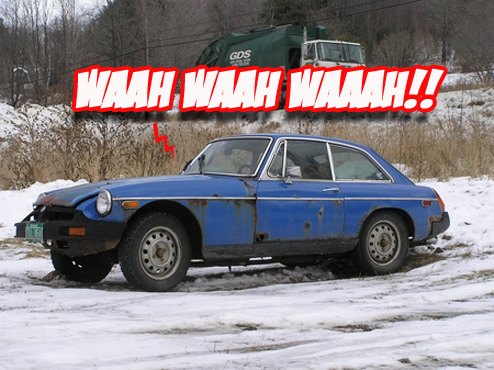






















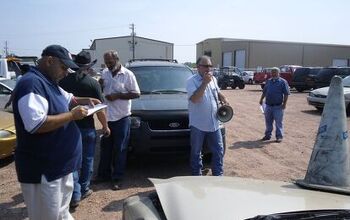
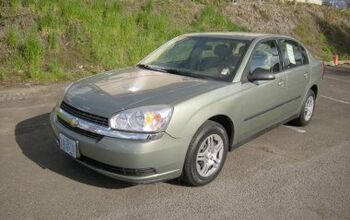
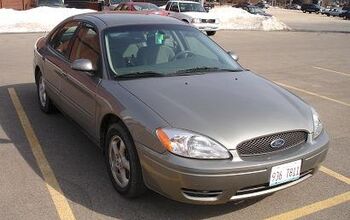









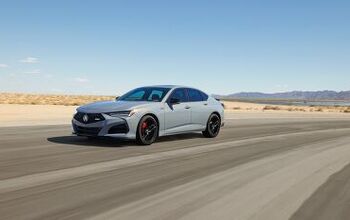

Comments
Join the conversation
When I was trying to decide what to dump my 2011 Taurus on, I looked at the new Altima and Camry. I read page after page of people hating the Altima on Edmunds, Camry - 2 comments and those sounded like folks you couldn't please no matter what. I got the Camry, if it holds up as good as the 08 Highlander my wife has, I will be happy!
Thanks for posting this. I'm a dealer in SE Michigan, and since I discovered this site I've been reading all of your columns. We have a lot in common, and it's good to see some of the war stories are not limited to my neighborhood. You may have discussed this vehicle at some point, but since I'm new indulge me. I have yet to figure out why Subarus are so popular, given how prone they are to leaky head gaskets. Can you, Steve, or anyone in the community enlighten me on this?